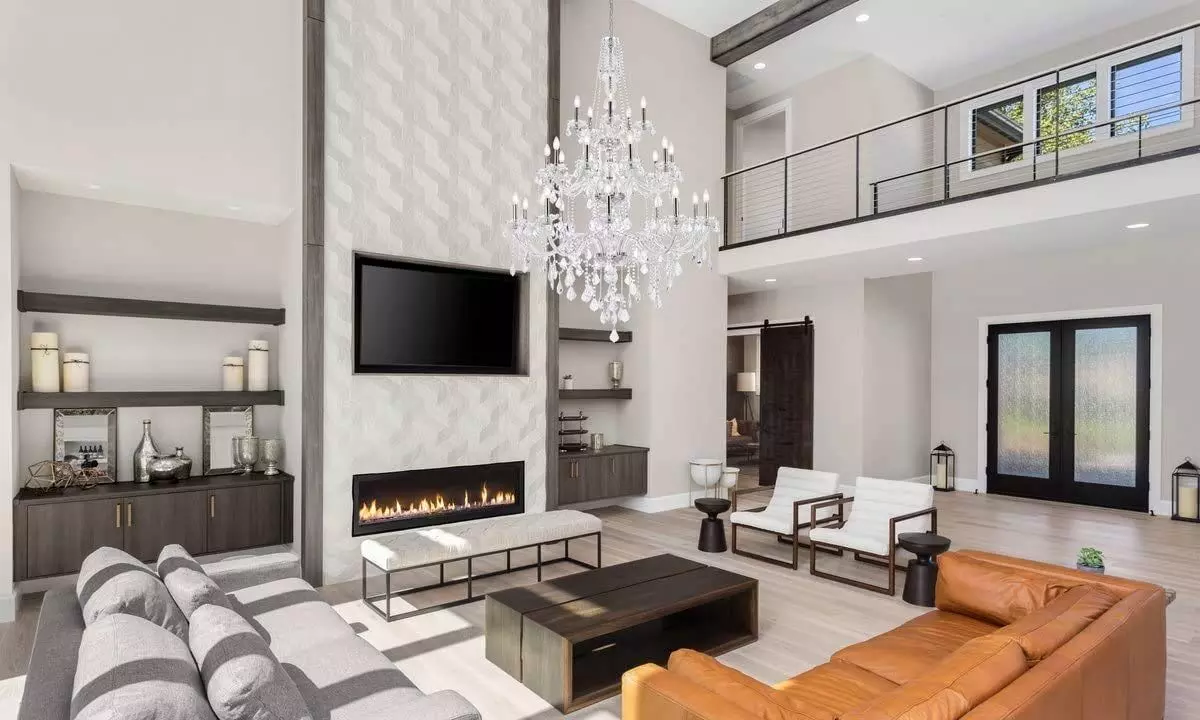Lighting at home: From aesthetics to health and well-being

Representational image
No longer are lights merely functional in illuminating a space; they have evolved into a pivotal component of interior design, contributing significantly to the overall visual appeal of a room.
Hyderabad: No longer are lights merely functional in illuminating a space; they have evolved into a pivotal component of interior design, contributing significantly to the overall visual appeal of a room. The use of cool-hued lights can create an atmosphere of alertness and awareness, while warm lights can induce relaxation and encourage rest.
Proper lighting is crucial for a comfortable and healthy home environment. The way we light our homes can have a significant impact on our mood, health, and overall well-being. Therefore, it is important to carefully consider and choose the appropriate lighting arrangement that suits our needs and preferences. Don’t underestimate the importance of lighting in your home. There are many factors that play a key role when you are lighting your homes.
Firstly, when selecting suspended light fixtures such as chandeliers and pendants, it’s crucial to take into account the height of the room. It’s essential to avoid choosing a light that hangs too high or too low. A general rule of thumb is that the bottom of the light should be around 12 to 24 inches below a standard 9-foot ceiling. Additionally, it’s important to ensure that the suspended lights do not impede the walkways and flow of the space. Secondly, when hanging a light above a dining table or breakfast counter, it is always advised to maintain 30-36 inches from the base of the light to the table’s top surface.
The height of the light can be adjusted based on its size, with smaller lights being hung lower and larger lights higher. Don’t be afraid to think outside the box - a distinctive pendant or a sculptural chandelier can add an artistic touch to your dining space. Thirdly, avoid limiting your lighting options to just downlights. The key to good lighting is layering, which involves using ambient, accent, and task lighting. Ambient lighting is the primary layer and provides light for surfaces such as walls and floors, making it ideal for daily activities like cleaning and moving around.
Accent lighting adds uniqueness and can be achieved through decorative light fixtures like table lamps, wall sconces, chandeliers, and floor lamps. Task lighting, on the other hand, helps with specific tasks like applying makeup or working at a desk, and can be achieved with lighting sources like vanity lights and desk lamps.

